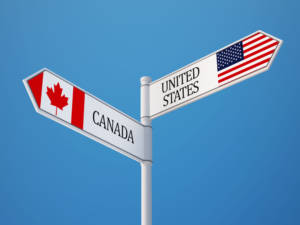What Canadians Should Know About Marriage and Citizenship
 With immigration laws constantly in flux, it’s important that Canadians stay aware of what is and isn’t allowed, especially when it comes to marriage. The last thing anyone should do is assume that marriage automatically means citizenship. You and a spouse as well as dependent children may find yourselves facing an impossible situation based on an assumption of citizenship. Here are some important things to know related to Canada, marriage and immigration.
With immigration laws constantly in flux, it’s important that Canadians stay aware of what is and isn’t allowed, especially when it comes to marriage. The last thing anyone should do is assume that marriage automatically means citizenship. You and a spouse as well as dependent children may find yourselves facing an impossible situation based on an assumption of citizenship. Here are some important things to know related to Canada, marriage and immigration.
Becoming a Canadian Citizen
Let’s be clear. Marrying a Canadian does not grant citizenship, nor does it afford special privileges or shortcuts in the naturalization process. The basic requirements for becoming a citizen are standard across the board:
- You must be a permanent resident.
- You must have lived in the country for three out of the past five years.
- Your taxes must be filed, if applicable.
- You need to pass an exam covering your rights, duties and knowledge of Canada.
- You must demonstrate a certain level of language proficiency.
Depending on your situation, there may be other requirements specific to you or a partner. A Canadian can sponsor a husband or wife for permanent residency if that person doesn’t live within the borders. This can also be done for dependent children who aren’t permanent residents and who can be financially supported without need of government assistance. Check the Canadian government’s website regarding immigration and naturalization for full details.
Marrying a U.S. Citizen
For Canadians considering life south of the border, marriage to a U.S. citizen doesn’t automatically guarantee naturalization. The path to citizenship in the United States requires certain steps to make sure neither you nor your loved one run afoul of immigration regulations:
- K-1 or Fiancé Visa. If you’re a U.S. citizen wanting to bring a Canadian fiancé south to marry, you’ll need to file a petition to secure a K-1 non-immigrant or fiancé visa. In order to obtain this visa, the marriage must be valid and occur within 90 days. You can’t get married simply for the sake of facilitating immigration. There should be real intent to live and love as a married couple. Once the marriage is complete, the Canadian spouse can then apply for permanent resident status, or a green card.
- Temporary Work Authorization. A fiancé can apply for a temporary work authorization after being admitted on a K-1 visa. This authorization is only good for 90 days after entry into the United States. Consider applying for a work authorization and green card at the same time for permission to work that lasts up to a year and can be extended in one-year increments. The green card provides permanent resident status and full work authorization.
- Marriage Green Card. Canadians can apply for permanent residency if they’re already married to American citizens. The American spouse can file a Petition for Alien Relative to obtain a green card, yet must demonstrate the ability to financially support the Canadian companion. At the same time, the northern spouse can complete an Application to Register Permanent Residence or Adjust Status to change his or her immigration status.
- After being a green card holder for three years, the Canadian spouse can apply for citizenship if other eligibility requirements have been met.
Building a life together with a fiancé or a spouse that isn’t a citizen of the planned country of residence can become difficult or impossible without paying careful attention to the rules. It’s unwise to assume that being Canadian or American facilitates the naturalization processes on either side of the border. Because you’re looking at a lifetime together that may also involve dependent children, consider talking to an immigration attorney or specialist, especially if there are special circumstances that are unique to you and your partner.

